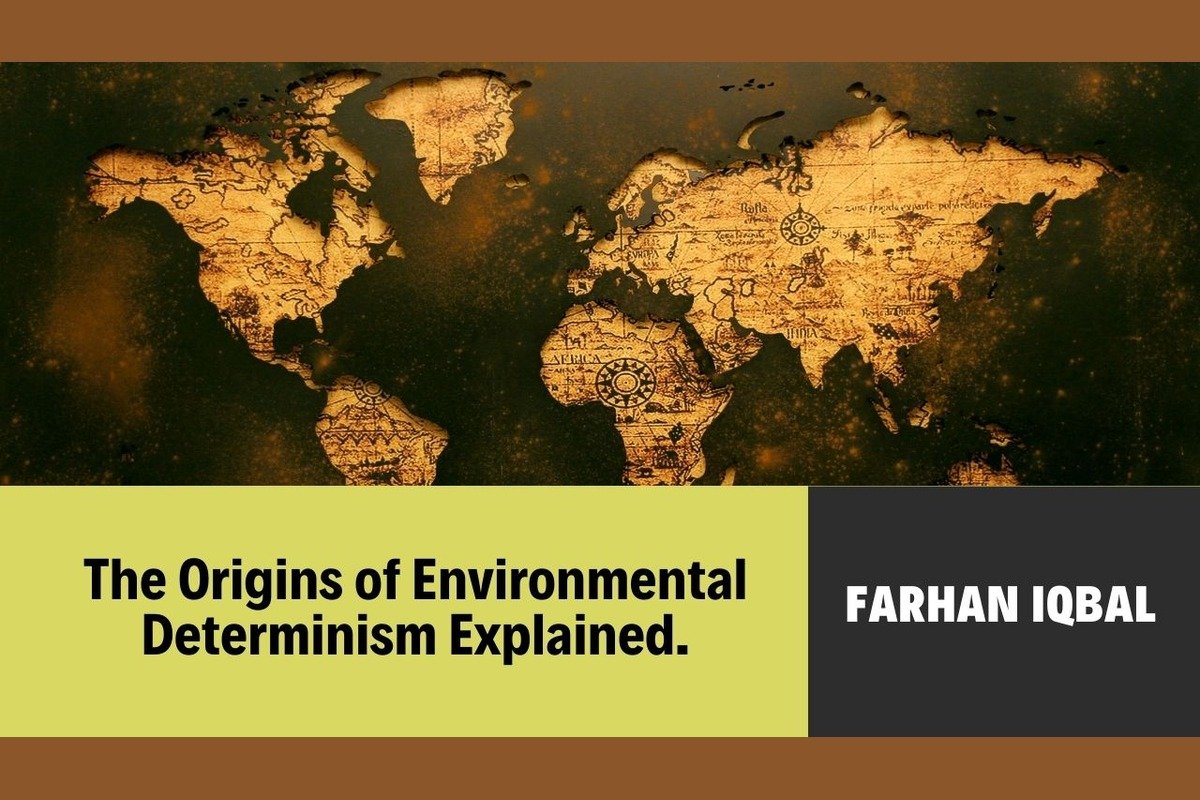1.Exploring Environmental Determinism: A Comprehensive Analysis
Introduction

In the realm of geography and environmental studies, environmental determinism stands as a significant theory that has shaped our understanding of the relationship between human societies and their surrounding environment. This theory proposes that the physical environment, including climate, terrain, and resources, plays a deterministic role in shaping the cultural, social, and economic development of societies. In this comprehensive analysis, we delve deep into the concept of environmental determinism, exploring its origins, key proponents, criticisms, and modern-day implications.
Understanding Environmental Determinism
Environmental determinism suggests that environmental factors exert a deterministic influence on human societies, dictating their progress, achievements, and even downfall. Proponents of this theory argue that geographical conditions directly correlate with cultural practices, technological advancements, and societal norms. For instance, regions blessed with fertile soil and abundant resources often witness the rise of prosperous civilizations, while harsh climates and geographic barriers may hinder development.
Origins of Environmental Determinism

Environmental determinism traces its roots back to ancient civilizations, where geographical factors were believed to shape the destinies of societies. The Greeks, for instance, attributed the characteristics and behaviors of different peoples to the climates and landscapes of their respective regions. Similarly, Chinese philosophy emphasized the influence of environmental factors on human behavior and societal organization.
During the 19th century, environmental determinism gained prominence with the rise of geographical determinism, championed by scholars such as Friedrich Ratzel and Ellen Churchill Semple. Ratzel’s concept of “Lebensraum” (living space) emphasized the intimate relationship between humans and their environment, suggesting that the geographical conditions of a region determined the development and expansion of its inhabitants. Semple further elaborated on this idea, asserting that environmental factors, including climate, topography, and resources, exerted a profound influence on cultural practices and societal institutions.
Modern Interpretations and Revisions
In contemporary scholarship, environmental determinism has undergone significant revisions and reinterpretations. Rather than advocating for strict determinism, scholars now emphasize the concept of environmental influence, acknowledging the interaction between nature and culture. This nuanced approach recognizes the agency of human societies in adapting to and shaping their environments, while still acknowledging the profound impact of geographical factors.
Key Tenets of Environmental Determinism
Climate as a Primary Factor:
One of the central tenets of environmental determinism is the belief that climate exerts a primary influence on the development of human societies. Regions with harsh climates, such as deserts or polar regions, are seen as less conducive to complex civilization due to challenges in agriculture and resource availability.
Geographical Determinism:
Beyond climate, environmental determinism encompasses a broader view of geographical factors, including topography, soil fertility, and natural resources. These factors are believed to shape not only the economic activities of societies but also their social structures and cultural practices.
Cultural Landscapes:
Environmental determinism emphasizes the concept of cultural landscapes, wherein human societies leave a lasting imprint on the physical environment through agriculture, urbanization, and infrastructure development. Conversely, the environment also shapes human behavior and cultural practices, leading to a reciprocal relationship between society and nature.
Criticisms of Environmental Determinism
While environmental determinism has been influential in shaping geographical thought, it has also faced significant criticisms over the years:
Environmental Determinism vs. Possibilism:
One of the primary criticisms of environmental determinism is its deterministic nature, which downplays the role of human agency and innovation in adapting to different environmental conditions. This criticism gave rise to the concept of possibilism, which argues that while the environment may influence human behavior, humans have the ability to overcome environmental constraints through technological advancements and cultural practices.
Socioeconomic Factors:
Critics argue that environmental determinism oversimplifies the complex interplay of socioeconomic factors in shaping human societies. While environment certainly plays a role, factors such as political systems, economic policies, and historical legacies also exert significant influence on societal development.
Ethical Implications:
Environmental determinism has been criticized for its potential to justify colonialism, racism, and environmental exploitation by framing certain societies as inherently inferior or backward due to their environmental conditions. This reductionist view neglects the rich cultural diversity and resilience of human societies across different environments.
Modern-Day Implications and Applications
In contemporary times, environmental determinism continues to influence various fields, albeit in more nuanced forms:
Environmental Policy:
Understanding the influence of environment on human societies is crucial for informing environmental policies and sustainable development strategies. By considering environmental factors in policymaking, governments can better address challenges such as climate change, resource depletion, and habitat destruction.
Geospatial Analysis:
Advances in geospatial technologies have enabled researchers to conduct detailed analyses of the relationship between environmental variables and human activities. Geographic Information Systems (GIS) and remote sensing techniques allow for the mapping and modeling of environmental factors, aiding in urban planning, natural resource management, and disaster response.
Cultural Ecology:
The concept of cultural ecology, which examines the adaptive strategies of human societies in relation to their environment, has emerged as a fruitful area of research within anthropology and geography. By studying how different cultures interact with their surroundings, researchers gain insights into the complex dynamics of human-environment relationships.
Conclusion
In conclusion, environmental determinism remains a compelling yet contested theory in the field of geography and environmental studies. While its deterministic view of human-environment interactions has been criticized for oversimplification and reductionism, the theory continues to inform research, policy, and practical applications in diverse areas. By acknowledging the complex interplay of environmental, cultural, and socioeconomic factors, we can develop more holistic approaches to understanding and addressing the challenges of the modern world






informative